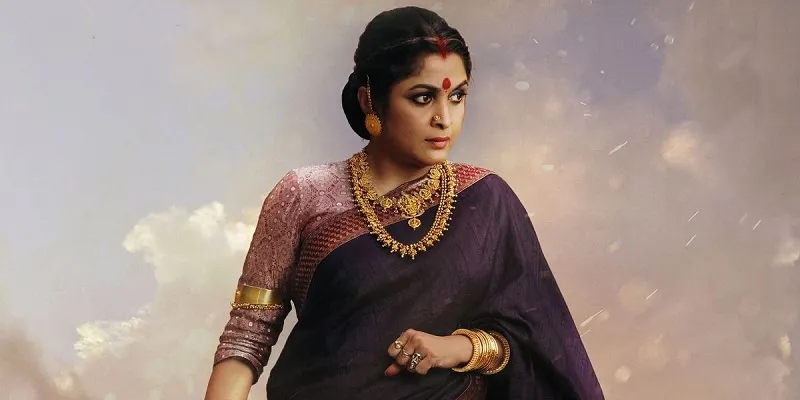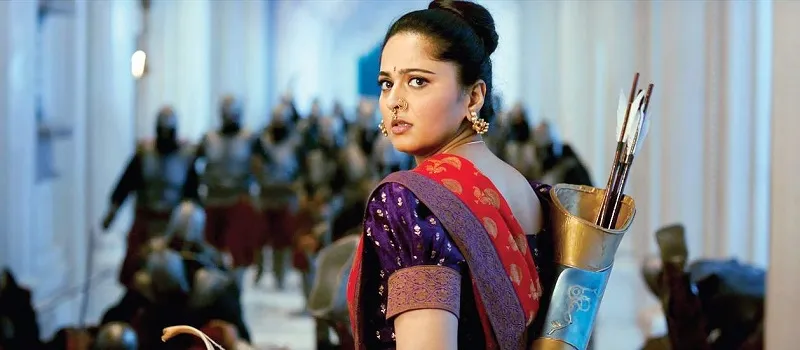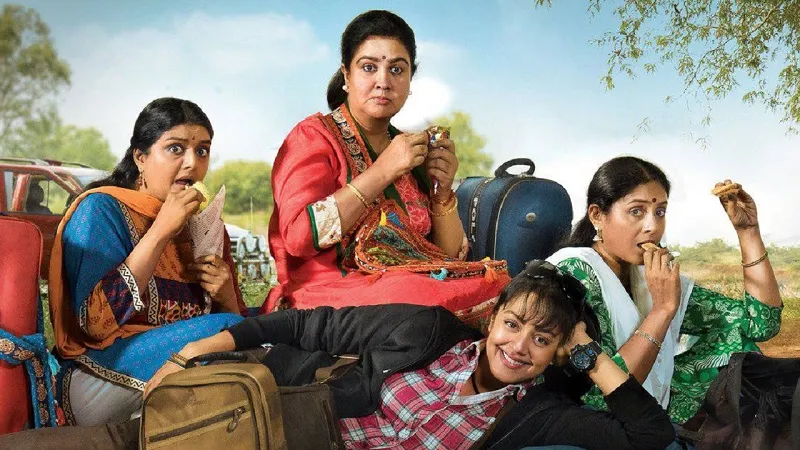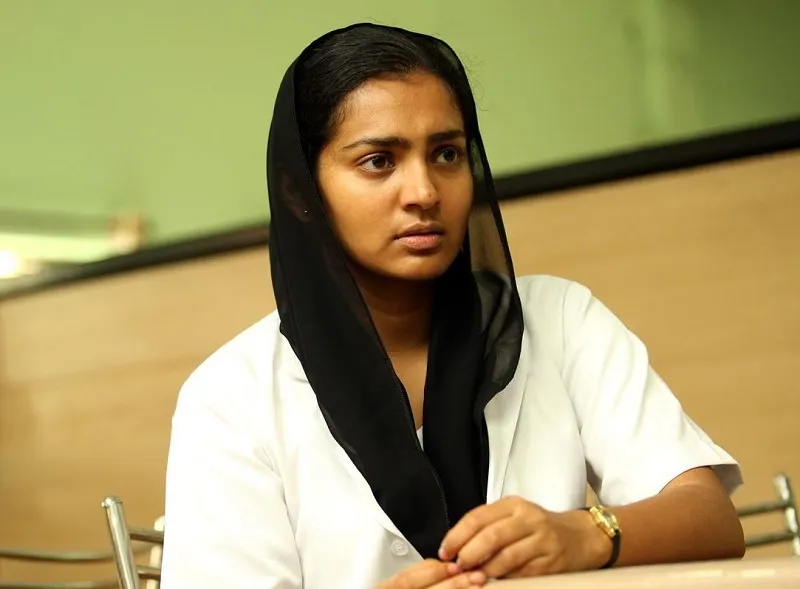6 times Indian films did right by its women in 2017
As the year comes to an end, let’s take a look at why women are unfairly under-represented in films and how some films break the pattern and set an example.

Every year, the Indian film industry produces close to 2,000 films and accounts for the largest number of cinema-goers in the world with more than two million entries. This number is constantly on the rise and it is for this reason, among many others, that films should ensure two things – men and women are equally represented on screen, and representation doesn’t end with giving either gender just screen presence.
Unfortunately, Indian cinema has failed its women in this regard, according to a study by Geena Davis Institute on Women in Media. The study conducted in 2013 on popular films across 10 countries, states that Indian films have had only 24 percent female characters in its films. However, the country was leading on the percentage of female characters in sexy attire (34.1), female characters with nudity (35 percent) and female characters that were ‘attractive’ (25.2 percent).
This means that, even when women were given screen presence, they were given merely supportive roles or, worse, objectified. However, in the recent years, there is a positive change in the trend as the directors are attempting to do right by the women. Here’s a list of movies released in 2017 that fall in that category -
Baahubali 2 – The Conclusion
Apart from answering why Kattapa killed Baahubali, the bilingual film tried to make up for the unwelcome portrayal of Avantika (Tamanna Bhatia) in its prequel Baahubali: The Beginning. In the first part, the warrior Avantika falls in love with Mahendra Baahubali as he forcibly shows her a ‘feminine’ version of herself.
The sequel tried to set the record straight and succeeded to an extent with its two strong and empowered women – Sivagami and Devasena.
- Sivagami – Mahismati’s queen

As the reigning matriarch of Mahismati, it is upon Sivagami to choose the successor to her throne. She chooses Baahubali over her son Bhallaladeva and proves to be a just queen. This is in contradiction to the ‘motherly love’ depicted in Indian movies for years, wherein a woman will stand by her son foregoing all rationality, even if he has wronged.
- Devasena
Devasena is not just a ‘pretty woman’ whose duty is to fall in love with the hero. She fights her enemies with a sword in her introductory scene and later one gets to know that she is also a skilled archer. She is courageous enough to stand up for what she believes in, despite the consequences.

Even when an army commander tries to harass her sexually, a knight in shining armour doesn’t come to her rescue. She takes it upon herself to chop off his fingers though she is heavily pregnant.
Magalir Mattum
The film, with four women in important roles, was a trend-setter on many levels in Tamil film industry. Usually, women are assigned to be hero’s mother and sister after marriage. Breaking that trend, the director had 40-year-old Jyothika playing the lead role of a single woman.

In the film, she is engaged to Gomatha’s (Urvashi) son – played by R Maadhavan. The relationship between her and her future mother-in-law forms the crux of the movie and it is based on mutual respect and love.
Thereby, Magalir Mattum breaks the stereotypical drift between a daughter-in-law and mother-in-law, a typical characteristic of many Indian language films for decades (Baahubali included).
In fact, it is Jyotika who takes Gomatha on a journey so that she can reunite with her two friends Rani (Banu Priya) and Subbulakshmi (Saranya) from her college after 40 years. Through these women’s stories, the film also explores men, all the way from those caught up in the idea of traditional patriarchy, to the feminists.
Tumhari Sulu
Even while fighting for women’s rights, it is the academically achieving women who are taken into account. Tumhari Sulu, a Hindi film, aims at reclaiming the space for women who did not complete their schooling. Sulochana (Sulu), is a homemaker living in the suburbs of Mumbai with her husband Ashok (Manav Kaul), and teenage son, Pranav (Abhishek Sharma).

She becomes an RJ one day, much to the surprise of the people around her.
Tumhari Sulu is her journey of discovering Sulu's identity, and trying to juggle between household responsibilities and job – her new-found freedom.
Secret Superstar
Insiya (Zaira Wasim), a teenager, comes from a conservative Muslim household. Her father is a domineering figure who dotes on his son, and dominates over his wife and daughter.
Insiya understands her mother’s sufferings and convinces her to get out of an unhappy marriage, but her mother is torn between both worlds.

With dreams of becoming a singer, Insiya starts a YouTube page where she records her songs anonymously.
Aruvi
Thirty years after it was discovered, are Indians ready to believe that a woman can get AIDS without being ‘immoral’? To understand the kind of treatment she would be subjected to, including her parents throwing her out of the house, one must watch Aruvi.

Aruvi, a Tamil film, is about the plight of Aruvi who is forced to live on her own. The movie also demonstrates how sexual predators lurk at every corner, and makes us question ourselves – should all sexual predators be branded as monsters forever?
Aruvi also attempts a brilliant spoof of reality shows, and a mockery at the caste hierarchy.
Take Off
Sameera (Parvathy) is a nurse in Kerala who is trying to clear her family’s debt. She is also an outcast in a conservative Muslim community as she is a divorcee with a child.
Based on a real-life incident where ISIS took Indian nurses as hostages in Iraq, the film directs the lens at multiple ways in which a woman is oppressed.
While demeaning her for being a divorcee, the religion also prohibits her from going abroad to work without a male companion. Determined to clear her family’s debt, she marries Shaheed (Kunchacko Boban), who promises an equal partnership. That, she hopes, will solve all her problems and she couldn’t be farther from the truth.

Once the couple reaches Iraq, her seven-year-old son joins them. Saira can neither tell him about her marriage, nor the fact that she is pregnant. She wants to live as Shaheed’s wife, but doesn’t want her impressionable son to hate her.
Torn between her young son and her husband, Saira’s story heeps from being about her alone.







